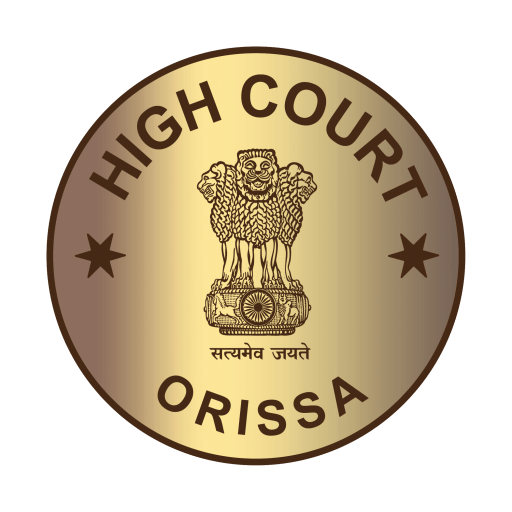
Sauri Behera & Ors. v. Nilamani Behera & Ors.
Case Number: RSA No. 356 of 2008
Date of Decision: 10th November, 2023
Without assailing the Record of Rights (RoR) prepared by the consolidation authorities
indicating (reflecting) the status (relationship) of the parties, before any statutory higher
forums under OCH and PFL Act, 1972, the suit for injunction disputing such status
(relationship) of the parties reflected in the consolidation RoR is not entertainable.
An appeal was preferred before the High Court challenging the judgment and decree of the first appellate Court, whereby it upheld the decision of the trial Court by denying the relief sought by the plaintiffs, i.e. appellants herein.
The original suit was filed by the male ancestor of the present plaintiffs and after his death, the present plaintiffs were added as legal representatives. The ancestor of the plaintiffs had filed the suit against the defendant, i.e. the first respondent herein, for declaration of right, title, interest over the suit land and to permanently injunct him from claiming right over the share of property which the plaintiff had.
The suit property belonged to the maternal grandfather of both the original plaintiff and the defendant. The original plaintiff filed a civil suit praying to declare the defendant as the son of his father, which was disputed by the defendant who claimed to be the son of the first husband of their mother. Had the defendant been the son of the second husband of his mother, he would have been deprived of his rights over the suit property being the son of a widow who remarried.
For determining the rights, the Court referred to the Record of Rights (RoR) prepared by the consolidation authorities in respect of the suit properties, wherein it was indicated that the defendant is the son of the first husband of the mother of the plaintiff. It was also noted that the said RoRs were prepared much prior to the filing of the suit. However, the same was not challenged.
The Court, therefore, held that when the RoRs reflecting the status of the parties were prepared much prior to the filing of the suit by the consolidation authorities and the same were not challenged before any competent higher forum of the consolidation, then the suit of plaintiff for injunction against the defendant without getting the RoRs set aside is not entertainable.
Collector, Koraput v. Sunadhar Pujari & Ors.
Case Number: S.A. Nos. 75 & 76 of 1987
Date of Decision: 30th November, 2023
Suit concerning property of a Hindu deity cannot be adjudicated
without impleading the deity as a party.
The Court was in seisin over a second appeal preferred by the Collector, Koraput against the judgment and decree passed by the first appellate Court confirming the decision of the trial Court. The original plaintiffs had filed the suit seeking their title over the suit lands and confirmation of their possessions thereon.
The suit lands were ‘pujariservice lands’ which are meant to be allotted in favour of persons serving the deities. The trial Court, taking all the evidence into consideration, had decreed the suit in favour of the plaintiffs holding that they are the pujaris of the village deities.
The matter was challenged before the first appellate Court by the defendants (another pujari and the Collector, Koraput). However, the first appellate Court did not find fault with the judgment and decree passed by the trial Court and accordingly, confirmed them.
When the case was brought before the High Court, it was observed that as the suit lands are the ‘pujari service lands’, the pujaris cannot seek proprietary rights over the same. It is so because as per the settled law, the deity is the owner or the ‘Bhumiswami’ of the land and the pujaris only hold the possession of property in ‘managerial’ capacity for their service to the deity.
The Court cited several precedents to hold that a Hindu deity is a juristic person and a perpetual minor, who though can be sued, but needs representation through human agencies. Therefore, as per the Odisha Hindu Religious Endowments Act, 1951 (the ‘OHRE Act’), the Commissioner of Endowments must have been noticed before conducting the trial to represent the deity. However, as the same was not done in this case, the Court held that the suit is bad in the eyes of law since a necessary party, i.e. the deity has not been added as a defendant.
Further it held that when pujari claims proprietary rights over the property of the deity, it tantamounts to mismanagement. Furthermore, it observed that when the dispute relating to properties of the deities are leading to disturbances in the puja of the deities, the matter deserves to be adjudicated by the appropriate authority/tribunal constituted under the OHRE Act and not by a Civil Court.
Jogendra Patel v. Fanibhusan Patel
Case Number: R.S.A. No. 447 of 2015
Date of Decision: 21st December, 2023
It is mandatory for Courts to answer all the issues framed during trial and
thatthey cannot decide suits only by answering a technical issue.
The Court was hearing a second appeal against the judgment and decree passed by the first appellate Court confirming the decision of the trial Court. The plaintiff had filed the suit seeking declaration of title of the disputed property in his favour and to permanently injunct the defendant from encroaching upon his possession of the suit land.
The trial Court had framed six issues for consideration and decision. One of such issues was whether the suit is bad for non-joinder of necessary parties. During the trial of the suit, both the plaintiff and the defendant deposed that the suit land has been acquired by the Government. However, the Government was not impleaded as a defendant.
Taking into account the non-joinder of Government, the trial Court answered only the aforesaid issue and held that the suit is bad for non-joinder of a necessary party, i.e. the Government. Without answering any other issues, as framed by it, it dismissed the suit.
Being aggrieved by the decision of the trial Court, the plaintiff filed the first appeal before the first appellate Court, which upheld the decision of the trial Court taking the same ground that the Government has not been impleaded as a party in the suit and therefore, it is bad for non-joinder of a necessary party.
When the second appeal was carried to the High Court, it was of the considered view that both the trial Court as well as the first appellate Court erred in answering merely a technical issue and deciding the entire suit only on the basis of that issue, letting all other issue go unanswered. It underlined the provision under Order 20 Rule 5 of the CPC, which mandates the trial Courts to decide all the issues at the time of passing judgments and decrees.
The Court further held that it was the duty of the first appellate Court to point out the error committed by the trial Court in not answering all the issues and it ought to have decided all the issues itself. However, as the first appellate Court also failed to follow the clear statutory mandate, the High Court had no other option but to remand the matter back to the trial Court for fresh adjudication.
Natabar Sahu (dead) & Anr. v. Dhaneswar Moharana & Ors.
Case Number: S.A. No. 110 of 1987
Date of Decision: 21st December, 2023
Unregistered lease deed, other than for agriculture or manufacturing,
cannot be for beyond a year; Tenant is bound to vacate the land
on 15 days’ notice by the landlord U/S. 106, TP Act.
The Court was hearing a second appeal filed by a tenant against the order of the first appellate Court which decreed in favour of the landlord, directing him (tenant) to vacate the land within one month along with an order to pay the arrears rents of the suit property.
The substantial question of law which arose for the consideration of the Court is that whether the tenant has any right to continue on the suit land after receiving notice under Section 106 of the Transfer of Property Act, 1882 from the landlord to vacate the land, especially on the basis of a lease deed which is not a registered one.
The Court cited various precedents from the Hon’ble Supreme Court as well as High Courts to conclude that lease deed in respect of land is compulsorily needed to be registered, unless it is let out for the purpose of either agriculture or for manufacturing. When the land is leased for any purpose other than the above two, then the deed must be a registered one if it is intended to be let out for a period more than one year.
It was also held by the Court that when tenancy is claimed on the basis of an unregistered lease deed, the same cannot be held to be ‘permanent’ and it can at best be on monthly basis. Therefore, the landlord has the right to ask the tenant to vacate such land giving him 15 days’ notice. Any occupancy beyond that period shall be considered as ‘trespassing’.
Accordingly, the Court refused to interfere with the order of the first appellate Court which had ordered the tenant to vacate the land within one month lock, stock and barrel and to pay the arrears of rent.

Dongaria painting displayed in the Judges’ Lounge
